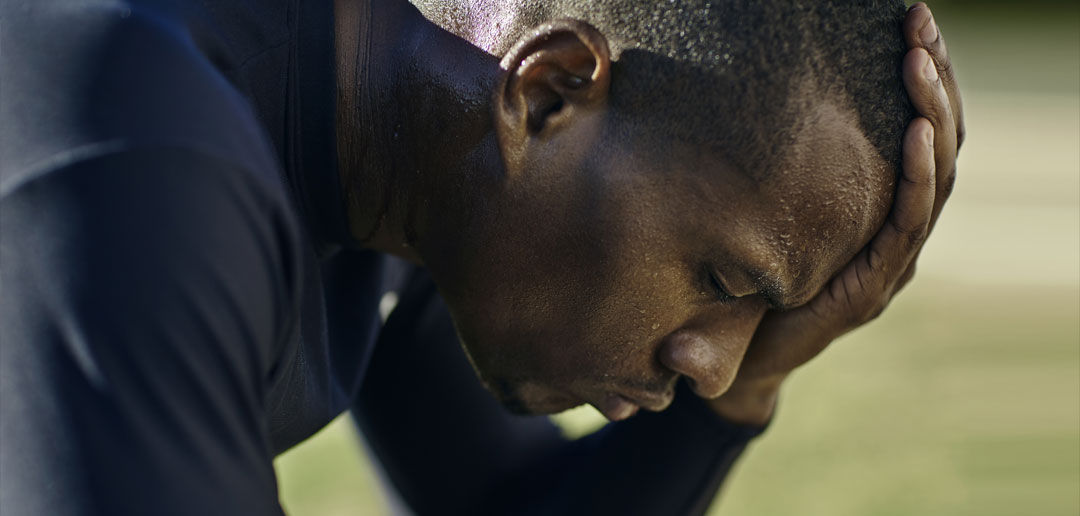Madison Holleran, Jordan Hankins and Tyler Hilinski had many attributes that made them different. They played different sports, were of different ethnicities and gender, and attended different schools.
However, these three athletes have one thing in common: each of them has died by suicide. All three deaths happened without warning, no one knew the depth of their internal struggle, the battle they fought in their minds. And they certain are not the only student athletes affected by mental illness.
Get our "Top Articles" sent to your inbox weekly.
In 2016, an assessment taken by the American College Health Association revealed that over a period of twelve months, 21 percent of male athletes and 27 percent of female athletes experienced depression, and over 32 percent of male athletes and 50 percent of female athletes experienced anxiety.
What we can learn from these percentages and the stories of student athletes who have died by suicide is worth saying out loud: Even the most elite athlete is not immune to mental illness. Entering the month of May—Mental Health Awareness month—my hope is that this collection of articles will bring this problem that affects so many people, particularly athletes, to your attention.
Starting to Break the Silence
There are also many professional athletes who have struggled with mental illness. Kevin Love, center and power forward for the Cleveland Cavaliers, recently published an article describing his battle with anxiety and panic attacks, and DeMar DeRozan (Toronto Raptors) has been candid about his struggle with depression.
Although I am encouraged by the number of people who have been coming forward about their mental health, an incredible stigma continues to be associated with mental illness. Despite the staggering statistics, mental health is a topic many shy away from in conversation and is not held to the same standard as physical health.
As someone living with bipolar disorder, I know all too well the challenges mental illness brings. But by the grace of God am I here writing to you and through hard work and self reflection I am moving forward in recovery.
While I sometimes get frustrated and discouraged by my mental illness, my experience with it has fueled my passion for mental health awareness. It breaks my heart to know that people are struggling in secret because they feel as though they cannot talk to anyone. My heart feels heavy when I think about how many people, especially young people, have died by suicide. My dream is for our country and eventually the world to break the silence and stigma surrounding mental health. This way we can bring this issue out of the dark and move everyone to a place of understanding and acceptance.
The Stain of Stigma
Stigma is the glass ceiling that keeps people from getting the help, understanding, and support they need. This is especially hard for athletes, as they are trained to push through physical pain and discomfort. Unfortunately, this is the same approach often taken with mental and emotional struggle.
Dealing with mental illness can also be hard for the Christian athlete, as there is also reproach associated with mental health in the church. I have noticed that even in the Christian community, a lack of understanding exists, and most people are unprepared to support our brothers and sisters affected by it.
Mental illness has historically been viewed as more of a spiritual issue, and praying more, reading more scripture and “having more faith” are typically offered as the antidote to get well. Please do not misunderstand what I am saying. I believe that God is a healer and is fully capable of delivering people from all kinds of ailments. God’s Word is our weapon against the enemy and “the prayer of a righteous man is powerful and effective” (James 5:16).
But mental illness is a complex problem that cannot be approached with spiritual solutions alone. Physical, spiritual, environmental and relational health are equally important in having good mental health.
As believers, we are supposed to carry each other burdens (Galatians 6:2) and love each other as Christ loves us (Ephesians 5:2). In order to be obedient to this, many people may need to change the way they think about aspects of mental health such as various mental illnesses, medication, and self-care.
Get Educated So You Can Help
If you struggle to understand mental illness and to have compassion for those of us affected by it, I encourage you to ask God to help you see us the way He does, to soften your heart and help you by the power of the Holy Spirit to move towards people who are hurting. I believe the main source of stigma is ignorance and lack of understanding. For those unfamiliar with mental illness or who are unsure how to support those who are struggling, start by doing research!
There are many resources, such as the National Alliance on Mental Illness (NAMI), that educate people on mental illness, how to be mentally healthy, where to go for help and how to support those around you. Also, do not be afraid to talk to others about mental health. It is good to ask questions, and there are so many people who are desperate for someone to just listen to them without judgment.
If you or someone you know is struggling, particularly with thoughts of suicide, call the National Suicide Prevention Lifeline at 1-800-273-8255.














